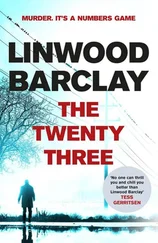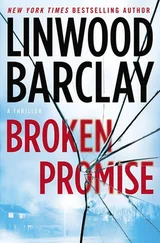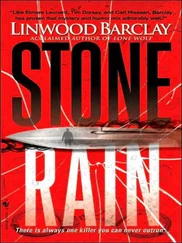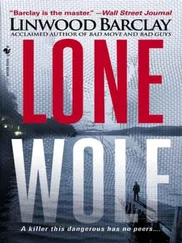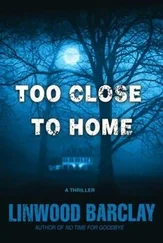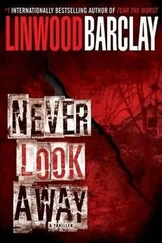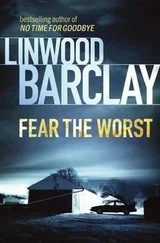“I never seem to have a pen on me,” I said.
“You either support Chief Perry or you don’t, that’s how I feel.”
“The chief and I have a complicated relationship,” I said. I wasn’t interested in talking politics any longer. I turned to his wife and asked, “When’s the last time you saw Hanna?”
She glanced at her husband and then back at me. “I didn’t hear her come in last night, and I guess she was off to school pretty early this—”
“Hanna didn’t come home last night,” Chris said. “For God’s sake, Glynis, stop fooling yourself.”
“If she didn’t come home, where was she?”
“With that boy. Sean. She’s over at his house most nights.”
“He lives with his parents?”
Rodomski nodded. “I guess they don’t see anything wrong with it. A girl shacked up in their house with their son.”
“Shacked up,” Glynis said mockingly. “What century are you from?”
“I need Hanna’s cell phone number,” I said to both of them, “and an address for Sean Skilling.”
“I can give you the number, but I don’t know exactly where the Skillings live,” Glynis said. “I’m sure they’re in the book, though.”
She recited the number, which I scribbled into my notebook. “They go to school together?”
Glynis nodded. “And Sean has a car.”
“What kind?”
She looked hopelessly at her husband. “It’s a pickup,” he said. “Probably a Ford. You know Skilling Ford, just outside of town?”
I did.
“That’s them.”
“What kind of work do you do, Mr. Rodomski?”
“I’m a financial adviser,” he said.
“Here in Griffon?”
“No, we have an office down on Military Road.” He pronounced it “milltree,” like everyone else around here did.
“I work, too,” Glynis said indignantly. “Looking after him and our daughter. That’s a full-time job.”
“One of Glynis’ little jokes,” Chris Rodomski said wearily. “She thinks if it’s funny once, it’s funny a hundred times.”
I handed them each a business card. “If Hanna comes home before I run into her, give me a call. Maybe by then I’ll have found Claire anyway.”
They each took a card without looking at it.
“One last question. What’s this business you mentioned?”
“Hmm?” Glynis said, playing dumb.
“When I came in, you asked if this was about that business they’ve been running. You said you told Hanna it could come back and bite her in the ass.”
“It has nothing to do with Claire Sanders,” Chris Rodomski said. “I think we’ve helped you out as much as we can.”
They showed me to the door.
As I walked back to my car, I took a small detour down the side of the house to get a look at the backyard. Even in the darkness, I could make out several garbage cans and an old rusted swing set. It had to have been years since Hanna had played on that. I thought of Chris Rodomski’s nice suit, the hole in his sock. Perfect living room, messy kitchen. Beautiful front yard, a jungle out back.
The Rodomskis liked to make a good first impression, but didn’t give a damn what you thought once you got to know them.
When she pops in from work to see that he is okay, and to bring him some takeout — Buffalo chicken wings and fries — he is sitting in the chair with a car magazine open on his lap.
“I don’t understand these what-they-call-’em nav systems,” he says. “All the cars have them now. Never had one of those in a car.”
“I hear they don’t work that well,” the woman says. “Heard about some idiot woman, she kept doing what the system told her and drove right into a lake.”
The man laughs softly. “That smells like wings,” he says, taking the Styrofoam box and opening it. “Looks delicious.”
“I brought you lots of napkins and wet wipes,” she says, handing them over. “Try not to drop the bones all over the room.”
Like it would matter. He’s always spilling his food. Once a week or so she tries to get in here and clean up the mess, but honestly, doesn’t she have enough to do? The room reeks, but she stopped noticing the smells long ago.
“Did you think about what I said this morning?” he asks, biting into a wing, tearing at the chicken with his gray teeth.
“What did you say this morning?” she replies. She remembers — she always knows what it will be about — but feigning ignorance stalls things for a while.
“About going in to work? Or just going out?”
“Enough. You’re wearing me out.”
She gathers some magazines on the bed — car magazines, a People and half a dozen National Geographic s — and sets them neatly on the bedside table. “You can’t ask me the same thing every day and think you’re going to get a different answer. You — oh for God’s sake, there’s toast crusts in your bed.”
The man says, “If it’s getting me out that worries you, I think I could manage the stairs myself. It’d just take a while, that’s all.”
“It’s not about that,” she says. “You know that.”
Something that troubled her that morning is eating at her again. Where’s the book? The one he writes in three times a day, or more? Now that she thinks about it, she hasn’t seen it for days.
“Where’s your stupid little notebook?” she asks.
“I told you, I write in it after you leave.”
“Since when?”
“I just do.”
“Where is it right now?”
“I think it fell under the bed. Might be stuck between the bed and the wall.”
“Move aside, I’ll find it for you.”
“It’s okay,” he says. “I’ll do it.”
“Better find it fast or you’ll forget what to write,” she says, deciding to drop it, at least for now. She has to go.
As she turns to leave, he says, “Wait.”
She stops. “What?”
“The boy,” he says. “What’s up with the boy?”
She is confused for a moment, unsure which boy he’s referring to. His stepson, or the one who’s caused them so much trouble lately. She decides on an answer that covers all the bases.
“Everything’s under control,” the woman says. “We’re doing our best to sort things out.”
“Maybe,” the man says, allowing a naive sliver of hope to creep into his voice, “it’s a good thing, what happened. I mean, it might mean things will change.” He smiles at her with those gray teeth. “I could use a change.”
“No,” she says. “It doesn’t mean that at all.”
He was always on my mind. It was true all through this period, but even now, after all this time, that’s still the case. Almost like a low-pitched hum, no matter what you’re doing, that’s always there in the background.
I thought about what he was like, the things we did together. Moments. Mental snapshots. Some of the memories were pleasant, some less so. Some of them were like signposts along a journey.
When Scott was eight, the school called because he’d been in a fight with another boy. Donna couldn’t get away from work, but I was between jobs, so I headed over. I found him sitting on a bench in the office, staring down into his lap, his legs just barely long enough to touch the floor with the tips of his sneakers. He was swinging his feet back and forth.
“Hey,” I said, and he looked up. His eyes were red, but he was not crying at that moment. I sat down beside him, our thighs touching, and he leaned into me.
Читать дальше

